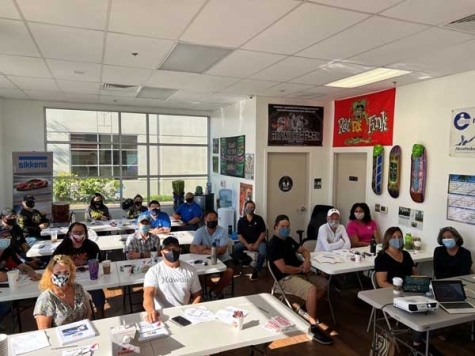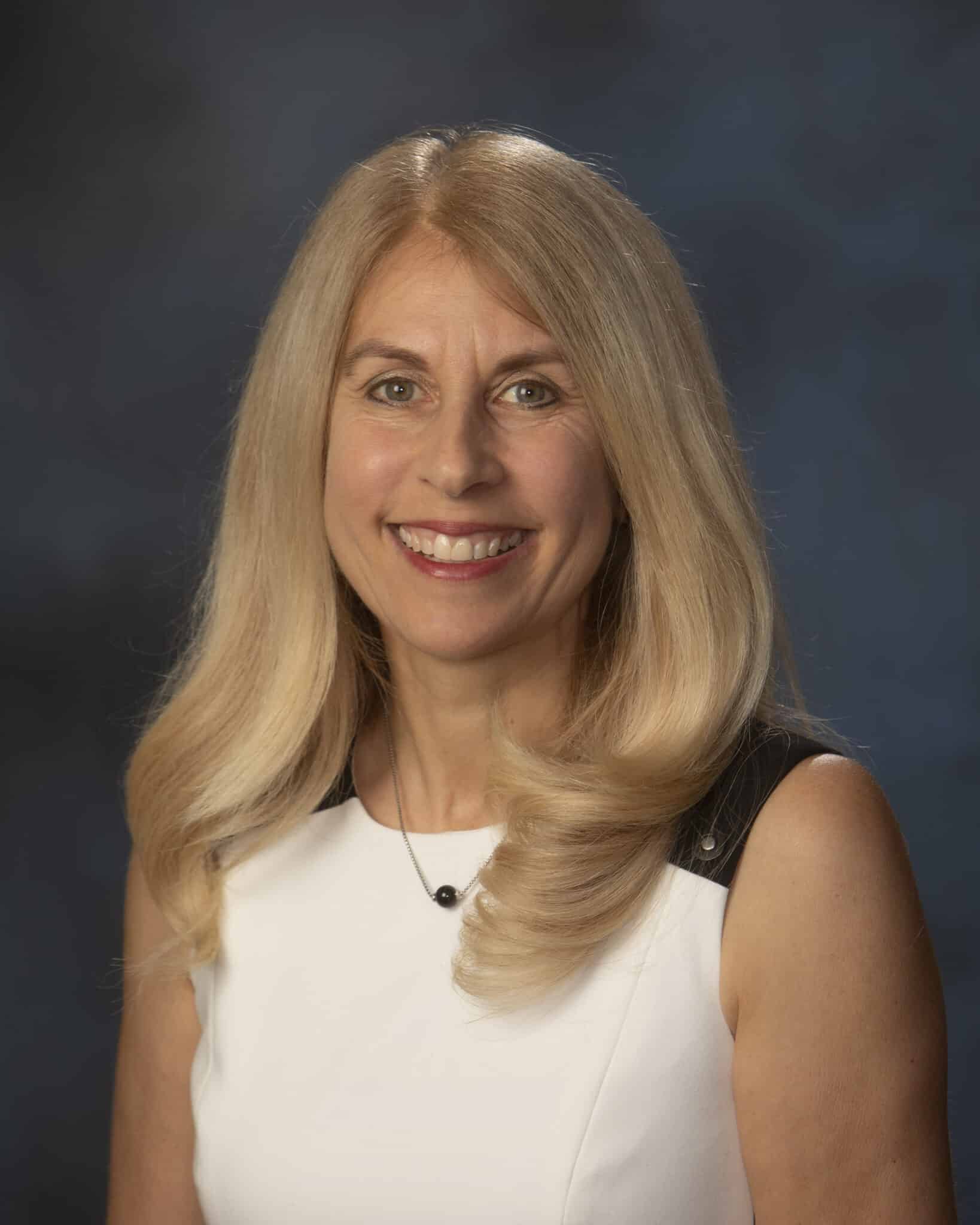Article reprinted from: Autobody News
Collision repair facilities in Hawaii now have the opportunity to take part in a variety of industry educational classes, thanks to Island Concepts’ new training facility.
“Our goal is to offer training throughout the year for management teams and shop employees,” said Scot Takemoto, partner and general manager at Island Concepts.
Takemoto and his team moved into the new Honolulu facility in July 2021 and held their inaugural training class in October, “Estimating Consistency—Documenting Damage.” The all-day course was taught by Tim Ronak, senior services consultant at AkzoNobel, and is part of AkzoNobel’s Acoat Selected program.
The class aims to help auto body shops safely repair vehicles by identifying all the procedures needed to ensure safety systems perform as intended. The main focus of the seminar included information about the damage documentation process and how to get reimbursed for these procedures, to help shops improve profitability.
In addition to being the exclusive paint distributor for AkzoNobel in Hawaii, Island Concepts offers products for body shops across the state.
The company previously used a smaller storage facility located in downtown Honolulu, which lacked space for training. The new building includes a training room as well as a storage area to house the products they provide to collision repair facilities. In addition, there is a separate area where Takemoto plans to set up a spray booth or prep station for hands-on training.
In the past, much of the instruction on the island was conducted by Honolulu Community College as part of its auto body repair and painting program. However, the program closed in the summer of 2021 due to a lack of enrollment because of the pandemic and Hawaii travel restrictions.
As a result, Island Concepts took the initiative to offer educational opportunities in Hawaii.
“We’ve always conducted shop training in the past as part of the services we provide, going out and supporting shops, but there were no formal classes because the college closed down,” he said. “Training is so important for the industry to help shops grow and keep up with new technology and repair procedures, especially because of the technician shortage in the industry.”
Island Concepts was established in the early 1970s. When Takemoto graduated high school in 1981, he began working at the company and sold AkzoNobel Sikkens paint.
“It was hard because I was selling a true basecoat/clearcoat to shops that were using lacquer or to high-end shops that had acrylic enamel,” he recalled.
With no knowledge about paint or how to sell, Takemoto took steps to learn the skills himself. “It was an education process,” he said.
He remembers one shop owner who owned a big facility on the island and changed his life. After explaining the benefits of the product to the shop owner, Takemoto learned he wasn’t going to buy the product.
“I realized then that people are different and you have to use different approaches to sell to them,” said Takemoto. “I also learned how to ask the correct questions to understand and fulfill those needs.”
Over time, Takemoto began selling additional shop materials and filling in for painters or technicians if they were out of town or unavailable to work. He and his team have continued this practice for the businesses they support. Takemoto also helps shop owners and managers monitor their financial data and paint and material key performance indicators (KPIs) with a material impact tracker to determine if and when improvement is needed.
“My intention has always been to help shops be more profitable and efficient,” he said. “I really enjoy helping the customers tracking their key performance indicators. I feel like I accomplish something and help the shop.”
Takemoto said he is also very appreciative of his team, which includes two technicians, Todd Stogdell and Cliff Casem, as well as an office warehouse manager and driver Arthur Noda.
“I love them like family,” he said. “I can trust them when I can leave and have no worries. We’re a team.”
Stogdell joined Island Concepts as the technical director in January 2012, where his main area of focus is helping with product inventory at shops and conducting technical support and training.
“Our job is to help shops. We’re the ones trying to keep an eye on the pulse of the business through KPIs, work in progress (WIP) and other key indicators to help them watch where they need to be,” said Stogdell. “We want them to be able to paint with confidence and know they have support from their paint distributor to help them out with any issues.”
Stogdell said an important part of this is encouraging them to use OEM procedures throughout the repair process.
With the addition of the new training center, Stogdell said Hawaiian technicians won’t have to necessarily go to the mainland to learn new skills.
“We’ll be able to do training here where we can hold classes… as well as eventually offer hands-on skills training,” he said. “We want to be able to provide painters a lot of guidance and assistance so they feel fully supported and have the trust of paint line behind them. I call it ‘painting with confidence.’”
Takemoto and Stogdell also assist shop owners and managers address issues they are having in their businesses.
One of the current challenges Stogdell has noticed since the pandemic is parts availability.
“That’s really been a struggle for shops, to get parts in a timely manner because everything is on national backorder,” he said. “The problem is that you drive by a shop and there are a lot of cars but when you look closely, more than three quarters of the vehicles are torn down waiting on parts.”
Another big challenge is the technician shortage. Stogdell said Island Concepts is encouraging mentoring programs in the shops they work with to help address this.
“You don’t need an A tech to work with an entry-level kid,” he said. “You want a good solid B technician so he or she can start the migration where he becomes the A tech, the guy he seasoned is the B tech and then you bring up the next tech. If we can get those kind of establishments going on in a shop, then the shop becomes viable in itself.”


